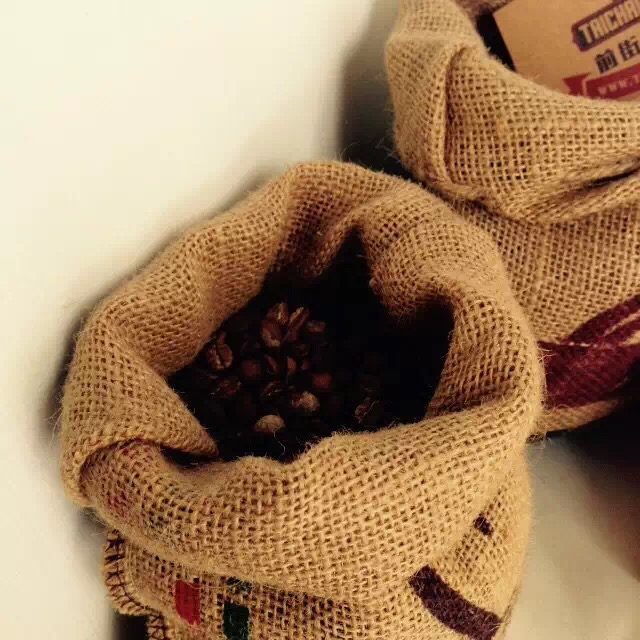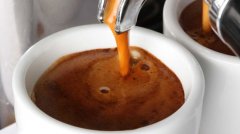What factors and what environment makes Jamaican Blue Mountain Coffee so delicious?

What makes Jamaican Blue Mountain Coffee so special?
One might ask, what is so special about Jamaican Blue Mountain Coffee? The answer is everything about it.
The best planting conditions in the world
Together, the weather, geological structure and topography of Jamaica provide a unique ideal place. The designated Jamaican Blue Mountain Coffee can only be grown in the Blue Mountain area, north-east of the island of Jamaica in Kingston. Coffee grows on a mountain with a maximum height of 1800 meters (almost 6000 feet), which is already quite high for small-grain coffee, and the mountains are very uneven and the process of harvesting is very difficult (coffee harvesting is almost entirely female). The tree is mainly small grain "GeishaHighBred" type. Seeds from these trees have been exported to other countries, such as Hawaii, Kenya, Papua New Guinea and elsewhere, but they are no longer able to create the flavor of Blue Mountain coffee beans anywhere.
In the steep and high-altitude mountains, careful farming and harvesting, all Jamaican Blue Mountain coffee is ground, tasted and distributed by the Jamaican Industry Association. The coffee in the cup tastes very clean, and it is one of the sweetest coffee in the world. This taste has been described by JimReynolds in Peet coffee and tea: "the best example of Jamaican Blue Mountain Coffee is its aroma, smoothness and richness." it makes me feel like a gem. It's as precious as a gem. It's complex, but very mild, it's sweet, it's very mellow. You have to taste it in order to know what I'm talking about. Unique growth conditions, and in all the production process are very careful, making Jamaica Blue Mountain Coffee very famous.
Jamaica is one of the small coffee-producing regions in the world, with an annual harvest of about 40000-60 kg / sack (Jamaican Blue Mountain coffee is actually shipped away in 70kg barrels, and they are the last country to still use this traditional packaging method, but they produce according to 60kg/ sacks, as that is the international standard for measuring coffee production). Compare Brazil, the world's largest exporter of coffee, with an annual production of 30000000 bags to 60 kg per sack.
The Japanese have invested heavily in the blue mountain coffee breeding area of Jamaica and have won 90% of the annual production. The rest of the world must bid for the remaining 10%, or 3500 barrels. The real Blue Mountain Coffee has a unique taste, making it the most expensive coffee in the world. Its demand is very high, so some of the market is in short supply.
Unique growth conditions
The unique growth conditions give birth to the unique flavor of Blue Mountain Coffee and make it one of the "gourmet Coffee". 100% of the world's pure Blue Mountain Coffee refers to a specific range of Blue Mountain Coffee in eastern Jamaica, and every step in its planting and processing has been subject to stringent standards of quality management by the Jamaica Coffee Industry Authority. can be proved to be "pure Jamaican Blue Mountain Coffee".
The special conditions such as abundant rainfall, year-round fog and low temperature, average temperature of about 20 ℃ and fertile new volcanic soil constitute a good growing environment for Blue Mountain Coffee. Located at a high altitude of 2500 to 5000 feet, it creates a unique slightly sour taste, but it is not at all exciting or uncomfortable. It takes about 2 years for seedlings to be cultivated in the nursery. Organic fertilizers are used during their growth, and they are harvested one grain at a time during harvest. All processing, baking and packaging processes must meet the high standards set by the Jamaica Coffee Industry Authority.
Typica with low quantity and good quality is the best variety of Arabica. Most coffee-producing countries are only willing to grow other varieties with high yield but poor quality, but Jamaica gives priority to quality, preferring to sacrifice the production of Blue Mountain coffee in exchange for the best quality of Blue Mountain coffee.
100% pure Jamaican Blue Mountain Coffee, with its strong and attractive elegance, is indeed unmatched by other coffees. When it goes through the steps of grinding, brewing and tasting, it gives full play to its flavor, and it is difficult not to get drunk with the aroma of coffee around. Its caffeine content is very low, only about half of other varieties of coffee, in line with modern health requirements.
100% pure Jamaican Blue Mountain Coffee perfectly and evenly blends its unique sour, bitter, sweet and mellow taste, coupled with a rich and unique aroma, it is no wonder that coffee lovers all over the world are fascinated by it! high altitude makes it with a little high-quality sour taste, a very slight degree of bitterness is short and does not retain in the mouth, into the throat into a slightly sweet feeling, mellow throat rhyme is still more interesting.
WALLENFORD- Jamaica Blue Mountain Coffee Development era
In 1728, coffee was first introduced into Jamaica. Due to the suitable soil, climate, light and other conditions in Jamaica, the quality of coffee was excellent. Andrews extends to other areas.
In 1737, Jamaican coffee production reached 83000 pounds per year; over the next 40 years, a large number of private landowners appeared, until 1800, there were 686 coffee farms in Jamaica.
As a result of the serf trade, labor costs rose sharply, and the landowners were overwhelmed by the cost. By 1850, the number of coffee plantations had decreased to 186.
By 1900, the Jamaican government established the first coffee quality standard, but the standard was boycotted by many private landowners and was not implemented.
Since then, due to the lack of quality standards, the export quality of Blue Mountain coffee was uneven, which greatly affected its international reputation. in 1943, Canada, a big importer of Blue Mountain coffee, refused to import Blue Mountain coffee.
In 1944, the Jamaican government realized the necessity of regulating the blue mountain coffee industry and reformulated three regulatory suggestions for the blue mountain coffee industry: ① concentrated on the processing of blue mountain coffee beans, ② established the blue mountain coffee quality standard, and ③ established CIB, which was responsible for the organization and management of the market and the role of export supervisor.
In 1948, the world-famous Jamaican Coffee Bureau (CIB) was formally established, and the Jamaican government enacted the regulations on the Management of Jamaica's Blue Mountain Coffee Industry. The main responsibility of CIB is to improve the quality of Blue Mountain Coffee through management and supervision and regain its global reputation. At this time, the definition of Blue Mountain Coffee has been strictly stipulated in the law: ① has given four statutory coffee farms, including wallenford, to concentrate on processing Blue Mountain coffee beans to ensure the quality of Blue Mountain Coffee. ② grows in the Blue Mountain area of 3000-5000 feet. ③ Blue Mountain Coffee Export Grade: No.1,No.2,No.3, Round beans
Since 1960, the blue mountain area of Jamaica, which was hit by hurricanes, destroyed most of the manor facilities and coffee trees. Foreign capital, including Japan, provided help, and also obtained the shares and preferential import rights of most of the estates. At this time, in order to protect the reputation of the national treasure Blue Mountain coffee, the Jamaican government still retained the wallenford manor as the state, and made part of the supervision function of CIB Wallenford,Wallenford manor synonymous with CIB. Charged with the mission of managing and innovating the coffee industry, the manor manager is also appointed by the government.
Quality Control of Blue Mountain Coffee
① Jamaica Coffee officially registered Logo for certification inspection of exported Jamaican Blue Mountain Coffee
② Jamaica Coffee Bureau (CIB) officially registered BLUEMOUNTAINCOFFEE ®trademark, marking authentic Jamaica Blue Mountain Coffee outer packaging
The early registered trademark of ③ WALLENFORDCOFFEECOMPANY marks the outer packaging of WALLENFORD Blue Mountain Coffee.
With the globalization of the reputation of Jamaican Blue Mountain Coffee and the global introduction of Jamaican Blue Mountain Coffee cultivation, there are many fake Blue Mountain flavor coffee on the market, which has seriously affected the excellent reputation of authentic Blue Mountain Coffee. In recent years, the Jamaican government has strongly advocated the export of Blue Mountain coffee in its roasting and original packaging, rather than in the form of raw beans, in order to avoid the impact of counterfeit Blue Mountain flavor coffee. The importance of this measure is that the Jamaican Coffee Bureau can monitor every link of the Blue Mountain Coffee export to ensure the purity and high quality of Blue Mountain Coffee.
Wallenford quality standard
In the Blue Mountain region, the legal production area for Blue Mountain Coffee is 3000-5000 feet, and Wallenford only selects Blue Mountain Coffee fruits grown above 4000 feet above sea level for processing. Not only that, Jamaica's four statutory Blue Mountain coffee processing plants Wallenford and MavisBank,SilverHill,MoyHall account for 90% of Blue Mountain coffee exports, and the Blue Mountain coffee produced by Wallenford,MoyHall is known as "SuperiorQuality" (absolute quality).
The extremely stringent quality control of Wallenford Manor is also reflected in the product shelf life, which is usually 12 months for a single roasted coffee, while the most stringent 8-month shelf life set by Wallenford obviously gives up its economic benefits, while wallenford has won the high popularity of coffee glutton all over the world, in their evaluation of all the Blue Mountain estates in Jamaica. Wallenford performs best in quality management, stability, popularity and flavor.
Limited Blue Mountain Coffee Export quota
According to Jamaica's CIB export statistics as of 2004, 85 per cent of the limited Blue Mountain 1 quota was allocated to Japan, 5 per cent of the United States, 5 per cent of Europe and 5 per cent of other countries. However, in the global consumption distribution of authentic Blue Mountain No. 1, according to the International Coffee Association (ICO), China accounts for 15% of the consumption of Blue Mountain coffee, which stunns the world. The reason is that some shares of Blue Mountain coffee in Japan, Australia and Europe are exported to China through direct branches.
The above differences in export quotas and consumption distribution are extremely embarrassing for the Jamaican government. The asymmetrical Blue Mountain coffee export quota keeps most of the profits in trading enterprises in countries such as Japan, and the Jamaican coffee industry has not benefited from it. The key to the shift was in 2005, when the Jamaican Minister of Agriculture made it clear that Blue Mountain Coffee should be more roasted in Jamaica, directly through quota allocation, preferring to circulate directly from Jamaica to consumer countries.
The means on which the Jamaican government relies on changing export quotas come from Wallenford estates, which are directly controlled by the government, and the wallenford Blue Mountain 1 quota means that the Jamaican Coffee Agency (CIB) endorses the quota target for the country or the company.
Important Notice :
前街咖啡 FrontStreet Coffee has moved to new addredd:
FrontStreet Coffee Address: 315,Donghua East Road,GuangZhou
Tel:020 38364473
- Prev

Characteristic fancy Coffee the characteristics and Origin of carbonated Coffee
Carbon-roasted coffee, also known as bitter coffee, means that the fire source of roasted coffee is carbon fire, and sometimes special wood is used as fuel. Coffee beans roasted with carbon fire will have wood flavor rather than carbon smell. This kind of coffee comes from Japan, and the pure re-roasting creates the unique taste of Japanese charcoal roasting, which is special, sweet, mellow, full-bodied and extremely bitter. Many
- Next

Manning boutique coffee introduces the characteristics, origin and history of Manning coffee.
Introduction and Origin of Manning Coffee Manning Coffee is produced in Sumatra, Indonesia, Asia, also known as Sumatran Coffee. Her flavor is very rich, sweet, pure bitter, mellow, with a little sweet and slightly sour, with a long aftertaste and aftertaste. Most coffee lovers drink on their own, but it is also an indispensable variety for blending coffee. Manning Coffee Man
Related
- Detailed explanation of Jadeite planting Land in Panamanian Jadeite Manor introduction to the grading system of Jadeite competitive bidding, Red bid, Green bid and Rose Summer
- Story of Coffee planting in Brenka region of Costa Rica Stonehenge Manor anaerobic heavy honey treatment of flavor mouth
- What's on the barrel of Blue Mountain Coffee beans?
- Can American coffee also pull flowers? How to use hot American style to pull out a good-looking pattern?
- Can you make a cold extract with coffee beans? What is the right proportion for cold-extracted coffee formula?
- Indonesian PWN Gold Mandrine Coffee Origin Features Flavor How to Chong? Mandolin coffee is American.
- A brief introduction to the flavor characteristics of Brazilian yellow bourbon coffee beans
- What is the effect of different water quality on the flavor of cold-extracted coffee? What kind of water is best for brewing coffee?
- Why do you think of Rose Summer whenever you mention Panamanian coffee?
- Introduction to the characteristics of authentic blue mountain coffee bean producing areas? What is the CIB Coffee Authority in Jamaica?

